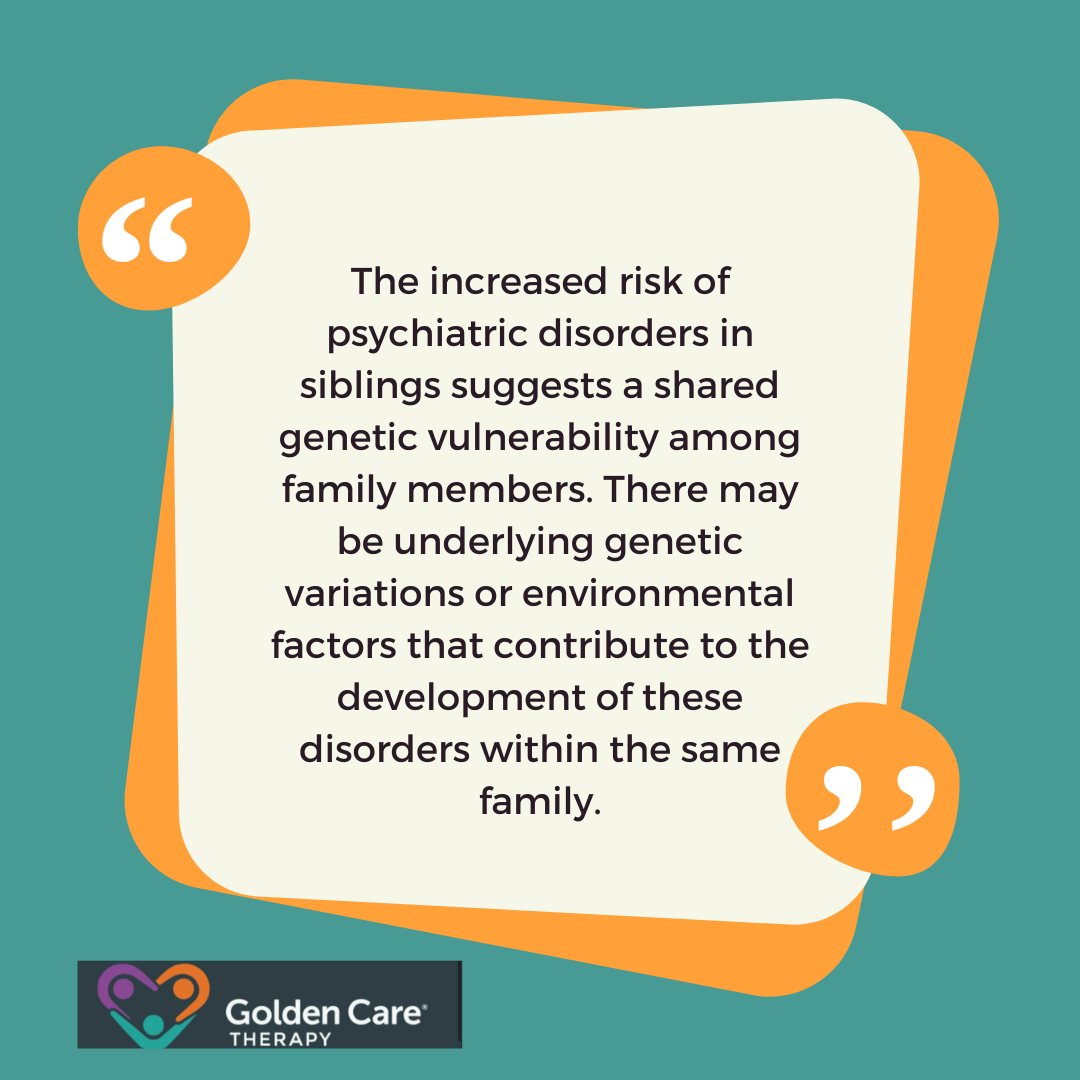Have you ever wondered if Asperger’s syndrome runs in families?
The idea that autism spectrum disorders, including Asperger’s, might be influenced by genetics is not just a theory but a widely accepted concept in the scientific community. With heritability estimates ranging from 64 to 91%, it’s clear that our genes play a significant role.
However, the story doesn’t end with genetics alone. Recent research highlights that environmental factors also play a substantial part, accounting for about 40 to 50% of the variability in autism spectrum disorders. This blend of genetic and environmental influences makes the question of familial patterns in Asperger’s both intriguing and complex.
Can Aspergers Run in Families?
Yes, Asperger’s syndrome can run in families, which indicates a hereditary component to the disorder.
According to research, having a family member with autism increases the risk of developing autism. In fact, a 2019 study involving more than 9,000 individuals from families with autism found that specific rare inherited genetic variations can heighten the likelihood of autism.
The chances of inheriting these variations may differ depending on whether they are of maternal or paternal origin.
Genetic variations play a significant role in the inheritance of Asperger’s syndrome. Researchers have identified several genes linked with increased autism risk. These genes are also linked to various biological processes, including brain development, synaptic function, and neural communication.
It is important to note that autism is a complex disorder with a heterogeneous genetic architecture. This means that there is no single gene responsible for the development of Asperger’s Syndrome.
Instead, multiple genes, each with a small effect, interact with each other and with environmental factors to contribute to the risk of autism.
While genetics clearly play a crucial role in the inheritance of Asperger’s syndrome, it is important to remember that genetics alone can’t fully account for the development of autism. Environmental factors also contribute significantly to the risk and variability of autism.
Family History and Autism
To further understand the inheritance of Asperger’s Syndrome, we have to explore family history. Research has shown that the risk of developing autism spectrum disorder, including Asperger’s Syndrome, can be influenced by familial factors.
If one child in a family is diagnosed with autism, the chance of the next child developing autism is higher compared to a child with neurotypical older siblings. Studies have found that when the first child is diagnosed with autism, the subsequent child has about a 20% greater chance of developing autism.
Furthermore, if the first two children in a family receive an autism diagnosis, the chances of the next child developing autism increase to 32%.
The age of parents can also play a role in the likelihood of their child developing autism. Research suggests that children born to older parents have a slightly higher chance of being diagnosed with autism.
A study found that mothers aged 40–49 and fathers aged 50 or older had a higher chance of having children with autism compared to younger parents.
It’s important to note that while there is an increased risk associated with parental age, the majority of children born to older parents do not develop autism. The influence of parental age on autism risk is just one of many factors involved in the complex nature of the disorder.
Psychiatric Disorders in Siblings
It is not uncommon for siblings of individuals with autism to experience psychiatric or neurodevelopmental disorders themselves. Studies have found that siblings of children with autism are more likely to have co-occurring conditions such as anxiety, schizophrenia, bipolar disorder, and tic disorders like Tourette’s syndrome.

Understanding the relationship between neurodevelopmental disorders and autism is crucial for comprehensive care and support. Recognizing the coexistence of conditions like ADHD and psychiatric disorders in siblings allows for a more holistic approach to diagnosis, treatment, and intervention strategies.
The Key Takeaway
The question of whether Asperger’s syndrome runs in families is met with a blend of scientific curiosity and personal significance.
Evidence suggests that genetic factors do play a role, making it more likely for Asperger’s to appear in multiple family members. However, it’s important to remember that genetics is just one piece of the puzzle, with environmental factors also contributing to the development of the condition.
Understanding these dynamics can offer families insights into their unique genetic makeup and help foster a supportive environment for individuals with Asperger’s. As research continues to evolve, we move closer to unlocking the full complexity of Asperger’s and how it interweaves through family histories.
For families seeking ABA services in New Jersey, Georgia, Indiana, and New York, Golden Care Therapy offers specialized ABA services to assist with these unique needs. Contact us today to learn more about how our expert team can provide the support your family needs.



